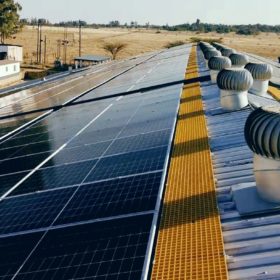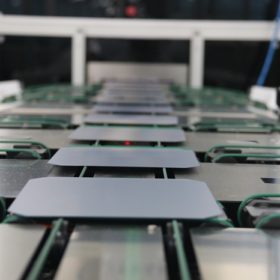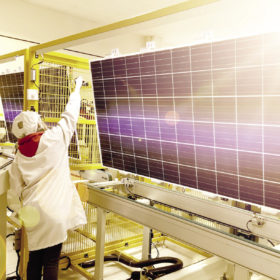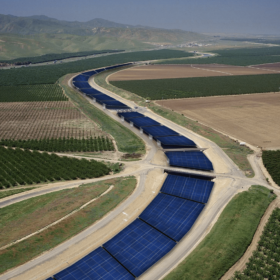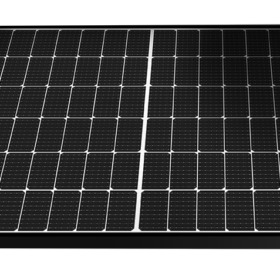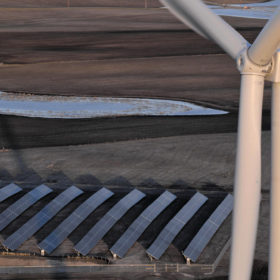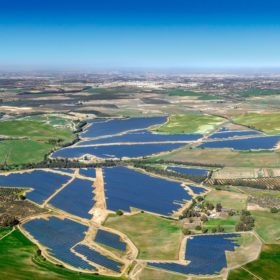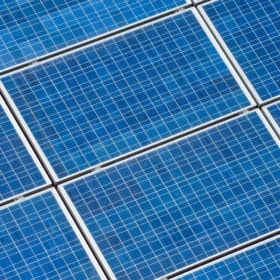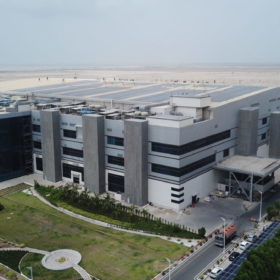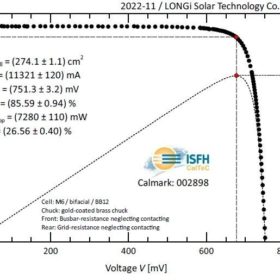Zimbabwe announces incentives for 1 GW of IPP solar projects
The Zimbabwean government has agreed to guarantee viable power tariffs to 27 solar projects by independent power producers (IPPs). Developers are set to build 997.9 MW of capacity, with a total investment of around $1 billion.
Chinese PV Industry Brief: Longi, TCL cut wafer prices by more than 20%
Longi and TCL Zhonghuan have announced wafer price cuts, Arctech Solar said it will supply 2.8 GW of single-axis trackers for solar projects in India, and Risen Energy has started mass production of its heterojunction (HJT) solar modules.
2022 review in trends: Modules (Part II)
N-type technology’s shift to the mainstream of PV production was a major development in solar cell and module manufacturing in 2022. Manufacturers added TOPCon and HJT capacity and racked up efficiency milestones in the process.
2022 review in trends: Applications (Part II)
The first part of this review covered solar-wind hybrid projects, offshore floating PV, and islandable microgrids. The second part covers trends in projects and applications.
2022 review in trends: Modules (Part I)
The move to n-type technology in mainstream PV production was a major development in PV cell and module manufacturing in 2022. Manufacturers added TOPCon and HJT capacity and racked up efficiency milestones in the process.
2022 review in trends: Applications (Part I)
It has been another bumper year when it comes to innovative projects and applications in the solar and energy storage sector. But within that larger trend of innovation are a number of other trends to keep an eye out for.
Global solar capacity additions hit 268 GW in 2022, says BNEF
BloombergNEF Analyst Jenny Chase says the world installed 268 GW of new solar capacity in 2022, with annual installations expected to hit 315 GW in 2023. In a recent interview with pv magazine, Chase pointed to a large backlog of delivered PV modules in Europe that still have yet to be installed.
Poland allocates 486 MW of solar in latest renewables auction
Poland’s Energy Regulatory Office has awarded 486 MW of solar in its latest renewables auction, which was largely unsubscribed. It allocated 150 MW for installations smaller than 1 MW, with a lowest bid of PLN 0.24477 ($0.056)/kWh, and 336 MW for larger installations, with a lowest bid of PLN 0.23677/kWh.
Adani becomes India’s sole producer of large monocrystalline silicon ingots
Adani Solar has started producing large monocrystalline silicon ingots for M10 and G12 wafers. It is targeting 2 GW of ingot and wafer capacity by the end of 2023 and 10 GW by 2025.
Longi claims world’s highest efficiency for p-type, indium-free HJT solar cells
Longi said it has achieved a 26.56% efficiency rating for a gallium-doped, p-type heterojunction (HJT) solar cell and a 26.09% efficiency rating for an indium-free HJT cell, both based on M6 wafers. Germany’s Institute for Solar Energy Research in Hamelin (ISFH) has confirmed the results.
